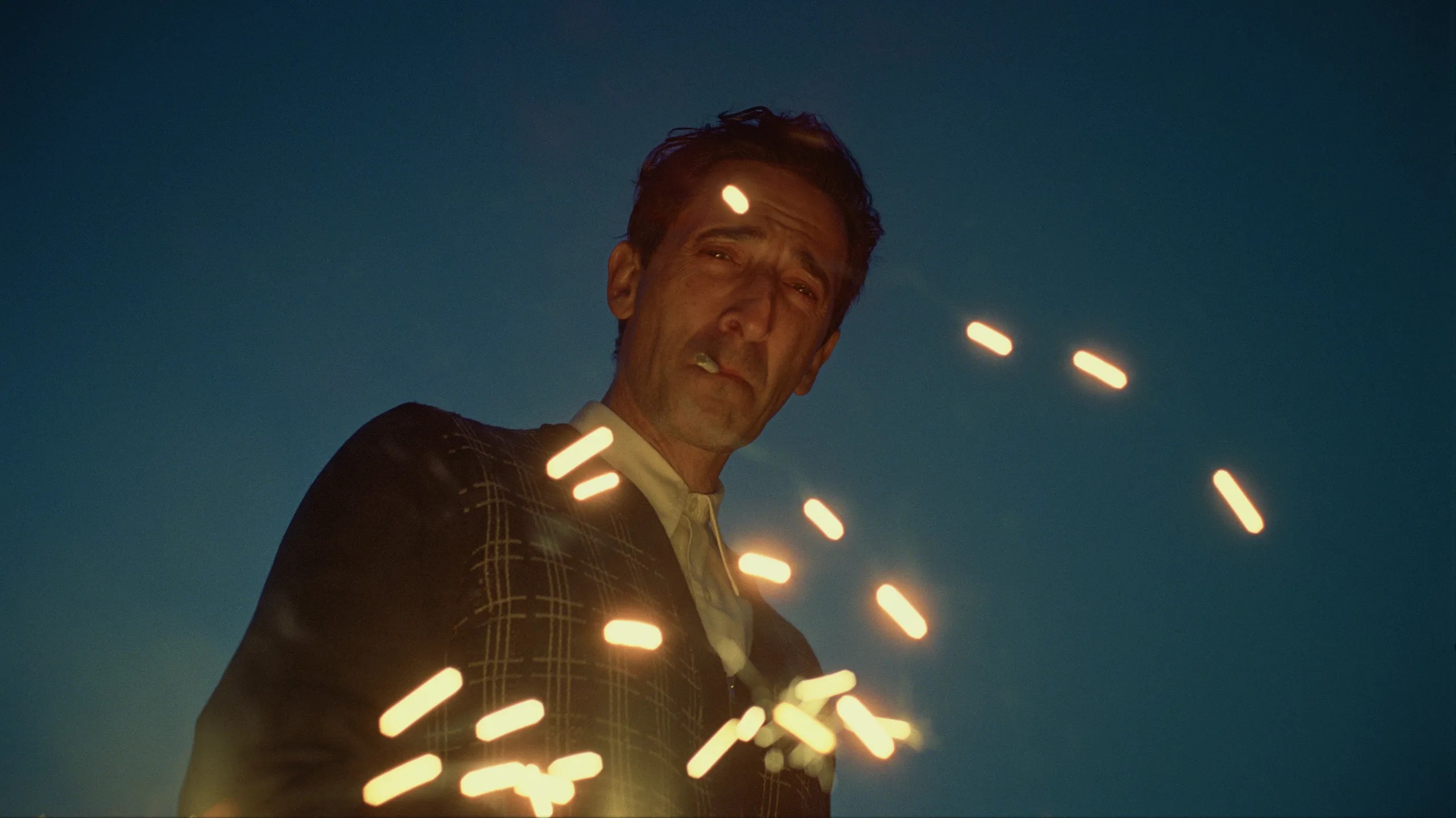Film Review: The Brutalist (2024)

After all these years of writing about movies, I’m not sure if I’ve grown more cynical toward films that fail to capture my imagination or more appreciative of those that grab hold of me and won’t let go. With each passing awards season, films come and go, but only a few ever stay with me past the Oscars. I think it’s important to closely consider these rare gems and cherish them for what they are: unique and wonderful works of art. Brady Corbet’s The Brutalist is such a film – one that pulls you into its epic fold, challenges your senses, standards, and expectations, and then leaves you to ponder its meaning long after the credits have rolled.
This bold, vast exploration of the American Dream is at times uplifting and stoic and at others demoralizing and borderline sadistic. But, regardless of your inclination toward any of these contradicting extremes, Corbet makes damn sure his film is impossible to turn away from. This is a movie rife with both beauty and ugliness, where the former is often buried deep within the latter. Make no mistake, though, when the beauty comes out to shine, it is absolutely radiant.
Told from the perspective of Hungarian-Jewish immigrant, Bauhaus-trained architect, and Holocaust survivor László Tóth (Adrien Brody in an Oscar-worthy performance), The Brutalist begins in 1947 with a woman’s voice-over detailing the hardships of post-war Hungary and the psychological damage caused by the horrors of near-death in a concentration camp. Throughout much of this, we follow László through a dark, chaotic, and crowded corridor toward an unknown destination. The narration suggest he’s wherever he is against his will, but moments later, when he emerges into the light only to see the Statue of Liberty before him, we realize that he’s near the end of his long journey, not the beginning.
This sequence sets the tone for what we are about to see over the next 215 minutes. As Daniel Blumberg’s thoroughly brilliant score booms out and the view of the statue is skewed and upside-down, Corbet informs us that things aren’t going to go as planned – that the resolve of the newcomers will be tested, and that the dream they were promised might remain just that.
After a series of hardships – including his wife and niece (Felicity Jones and Raffey Cassidy) still trapped in Soviet-occupied Hungary, a cousin who resents him (Alessandro Nivola), and a burgeoning heroin problem – László finally catches his break when a wealthy industrialist (an increasingly malicious Guy Pearce in his best performance in years) takes notice of the architectural work he did before the war in Hungary. Soon, the pair collaborate on a large-scale project in the suburbs of Philadelphia, the design of which fascinates some and baffles even more. (Pay attention at the end of the film when it’s revealed why László insisted on the specific design. The quick utterance is one of my favorite movie moments of the year.)
As excitement turns to obsession, The Brutalist weaves in and out of László’s life and emotional state as he’s reunited with his family and navigates American cronyism and prejudice. Just beneath the surface (and sometimes bubbling over into intense displays of emotional outbursts), a creeping hostility lingers over all of László’s interactions, especially in his dealings with the wealthy capitalists who hold the purse strings. Corbet may not be kind to László as a matter of plot, but his disdain for these barons of industry drips from the screen.
Also lingering is Corbet and co-writer Mona Fastvold’s frequent but noncommittal innuendo regarding each character’s sexuality. The Brutalist, while not an especially explicit film, is nonetheless charged with so much sexual tension that it informs, at least on some level, the actions of nearly every character. There are exceptions, but, as you will see, the sex found in The Brutalist is not about love or even desire but rather about power. And it gets ugly.
Corbet has clearly studied the techniques of epic filmmaking. The influence of Francis Ford Coppola, Paul Thomas Anderson, Ingmar Bergman, Stanley Kubrick, Federico Fellini, John Ford, Steven Spielberg, Akira Kurosawa, Andrei Tarkovsky, and Martin Scorsese are all present. These are big names who made some of the biggest movies of all time and Corbet intelligently borrows from them all without showing any signs of plagiarism. The Brutalist is by no means a derivative film. In fact, it is the most quintessentially American film to come along in some time. And like the films of those mentioned above, I believe it will also be recognized as an everlasting gem of world cinema.

